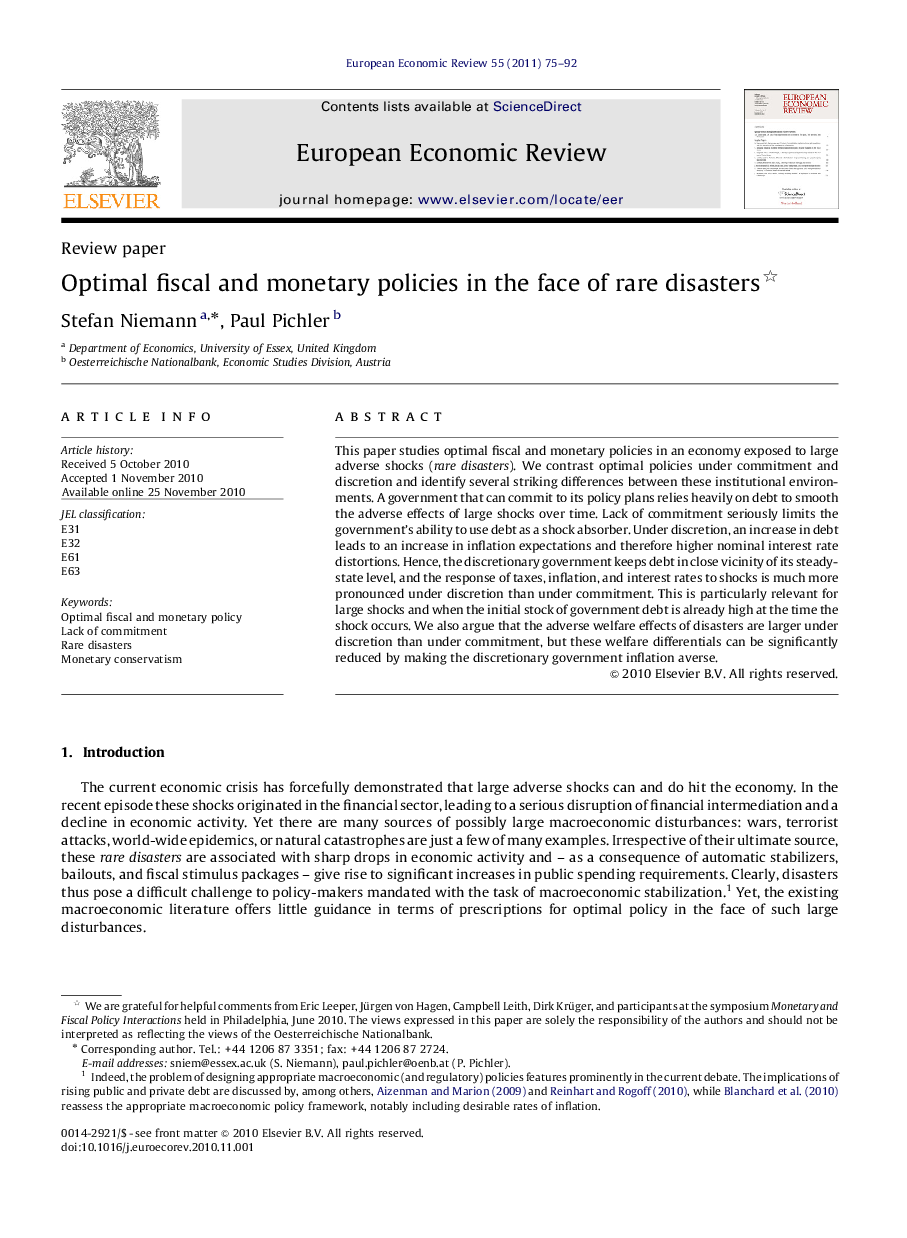| Article ID | Journal | Published Year | Pages | File Type |
|---|---|---|---|---|
| 5067208 | European Economic Review | 2011 | 18 Pages |
Abstract
This paper studies optimal fiscal and monetary policies in an economy exposed to large adverse shocks (rare disasters). We contrast optimal policies under commitment and discretion and identify several striking differences between these institutional environments. A government that can commit to its policy plans relies heavily on debt to smooth the adverse effects of large shocks over time. Lack of commitment seriously limits the government's ability to use debt as a shock absorber. Under discretion, an increase in debt leads to an increase in inflation expectations and therefore higher nominal interest rate distortions. Hence, the discretionary government keeps debt in close vicinity of its steady-state level, and the response of taxes, inflation, and interest rates to shocks is much more pronounced under discretion than under commitment. This is particularly relevant for large shocks and when the initial stock of government debt is already high at the time the shock occurs. We also argue that the adverse welfare effects of disasters are larger under discretion than under commitment, but these welfare differentials can be significantly reduced by making the discretionary government inflation averse.
Related Topics
Social Sciences and Humanities
Economics, Econometrics and Finance
Economics and Econometrics
Authors
Stefan Niemann, Paul Pichler,
